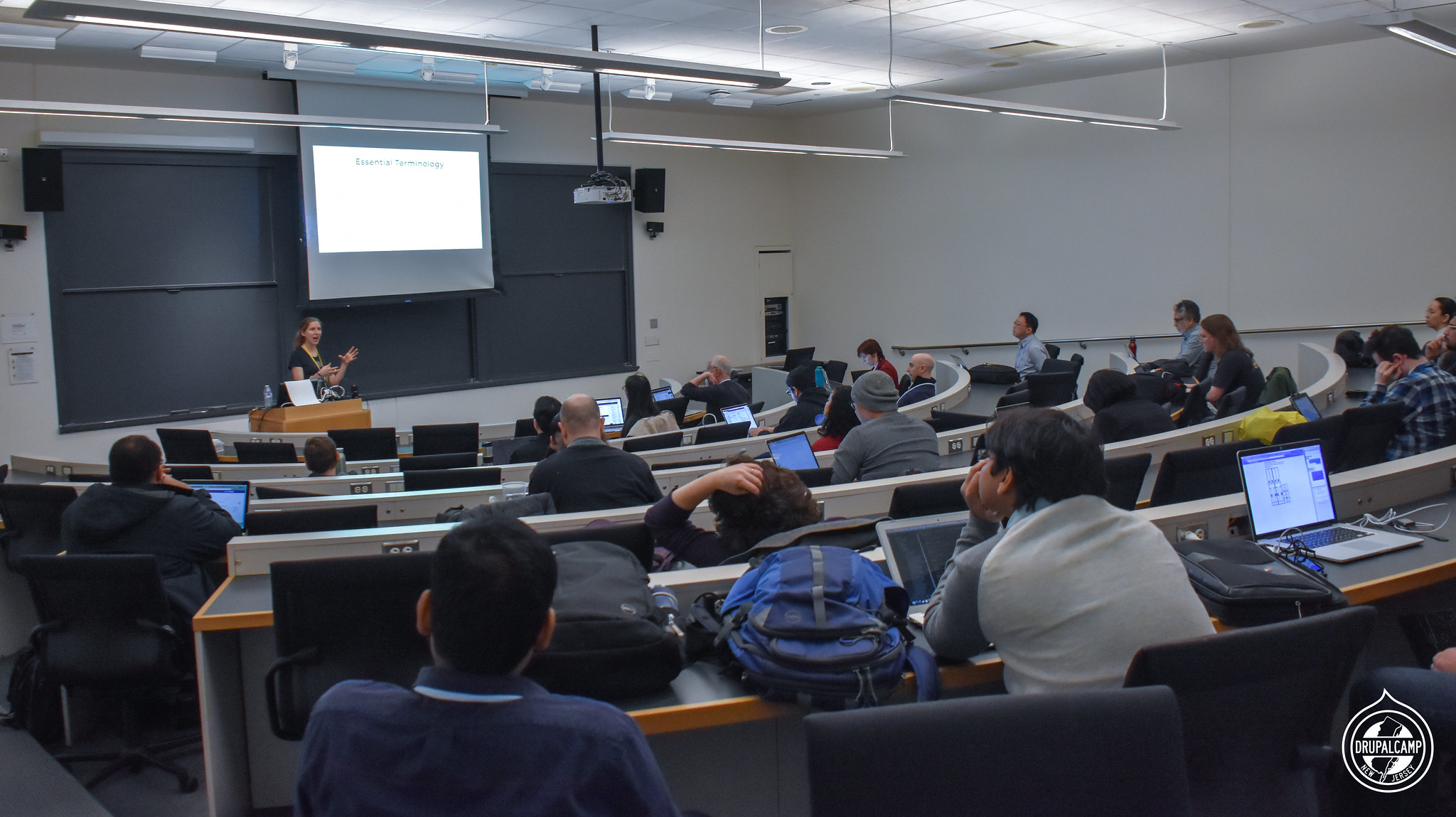DrupalCamp New Jersey has been held annually since 2012, and this year, as the event’s diamond sponsor, Evolving Web will be there hosting a number of sessions on various subjects, ranging from Drupal migration to user experience and project estimations.
One Day to Learn About All Things Drupal
In 2022, DrupalCamp NJ is focusing on topics of interest to Drupal users with a range of experiences and responsibilities. Topics include performance, accessibility, design, decoupled architectures, and much more. The camp will be one day full of activities, with 20 sessions and many opportunities to connect, learn, and contribute.
The camp will take place at Princeton University, with which we proudly partnered on several Drupal projects: Princeton International, Princeton University School of Public and International Affairs, and Princeton University Press.
Apart from hosting sessions, the Evolving Web team will be there to connect with other Drupalists, talk about Drupal, discuss projects, and also organize a prize draw for free training: just drop by our booth, leave your contact info, and wait to see if you’re the lucky winner!
Our Team’s Sessions
If you’re planning to attend, you can find DrupalCamp NJ’s full list of sessions. Also, if there’s any topic you’re missing, you can always submit your idea as a Birds of a Feather session, informal gatherings to discuss a certain topic without a pre-planned agenda.
Now let’s take a look at the sessions our team is presenting at DrupalCamp NJ this year:
- Drupal Project Estimation, for Fun and Profit, by Alex Dergachev & Rukmini Halliwell
Being able to accurately estimate the time required to develop a product or feature is crucial for every Drupal developer. Whether you’re on the buying or selling side of a project, a mature estimation process can make the difference between project success and failure.
In this session, Alex and Rukmini will discuss the mysterious art of software estimation and show our basic Drupal estimation spreadsheet model, based on factors such as the number of content types, number of expected pages, content migration, and other parameters.
- User Experience: How to Make Design Decisions that are Data-Driven, User-Centric, and Stakeholder-Influenced, by Suzanne Dergacheva
When we design user experiences, decide on information architecture, or prioritize content on a homepage, we must take all useful inputs into account, whether they’re data-driven or coming from a given stakeholder. This is a delicate balance, though, and it’s useful to know which metrics to focus on and what methods help us make different types of decisions.
In this session, Suzanne will talk about user research techniques, the pros and cons of data-driven design and content decisions, how to get the most value out of stakeholder input, and the dangers of “design by committee”.
- Drupal Loves Composer, and You Can Love It Too, by Kevin Porras
With the Composer Support in Core Initiative, the adoption of Composer by the Drupal community has become wider. However, as good as it is, Composer can be intimidating and even problematic if you lack some basic knowledge.
Kevin will tell you about the basics (and not-so-basics) of Composer, including creating a Composer project, adding dependencies to it, dealing with merge conflicts, dependencies resolution problems, and popular Composer plugins.
- Any Content Site Can Be Migrated to Drupal: I'll Show You How, by Jorge Diaz
In this session, Jorge will present how five completely different websites were migrated to Drupal. He will map out the process in detail, from the original legacy website to the final end product, giving a full perspective on the migration process.
- Regression Testing with SiteDiff and Playwright, by Robert Ngo & Alex Dergachev
As part of building and maintaining Drupal projects, code changes and updates are progressively introduced and integrated into the code base. Sometimes, even a small change to a line of code can introduce unforeseen consequences.
To avoid that, regression testing ensures existing functionality continues to work after you make updates. To make this efficient and ensure that tests are run consistently, automating the testing process is essential. In this session, Robert and Alex discuss some use cases for SiteDiff and Playwright, two complementary regression testing tools.
We’re very excited about this year’s DrupalCamp NJ. This will be another great opportunity to learn, build connections, have fun, and make the Drupal community stronger. See you there!
About DrupalCamp NJ 2022
When: Friday, May 27, 2022
Where: Princeton University, Princeton, NJ, 08544

